
Arthur Wellesley dismounted to settle in for dinner on early afternoon, 22 July 1812. For almost a week, his army had raced to keep up with French manoeuvres to avoid being outflanked. As he tucked into his chicken on the Lesser Arapiles observation point, Wellesley (who was given the title Duke of Wellington in 1814) could see the French Army deploying below. Looking to his right, he saw five of Auguste de Marmont's divisions shifting west, ready to cut off the British retreat back to Portugal. "My God! That will do," Wellesley exclaimed, seeing that the Seventh Division led by Jean Guillaume Barthélemy Thomières, followed by Antoine Louis Popon de Maucune's Fifth Division, had outstripped their comrades. Tossing a half-eaten chicken leg over his shoulder, Wellesley jumped onto his horse and rode three miles (5km) west. His destination was Major General Edward Pakenham, his brother-in-law and commander of the Third Division. "Edward, move on with the third division - take the hills in your front and drive everything before you," Wellesley ordered. "I will, my Lord, by God!" Pakenham replied, and his division raced to engage Thomières' men before the other French divisions could catch up.
Wellesley's opportunism sparked the 1812 offensive in the Peninsular War. A chance to cross the border from Portugal and challenge French dominance in Spain came when Napoleon sent 25,000 men east to join the invasion of Russia that, combined with his attack on Valencia, left French forces in Spain stretched. While Spanish guerillas distracted the occupiers, Wellesley entered Spain on 19 January, seizing Ciudad Rodrigo and Badajoz. Meanwhile, Lieutenant General Sir Rowland Hill led a force to destroy the bridge over the Tagus at Almaraz, isolating Marmont's Army of Portugal at Salamanca from Nicolas-Jean de Dieu Soult's Army of the South at Seville.
Bu hikaye History of War dergisinin Issue 138 sayısından alınmıştır.
Start your 7-day Magzter GOLD free trial to access thousands of curated premium stories, and 9,000+ magazines and newspapers.
Already a subscriber ? Giriş Yap
Bu hikaye History of War dergisinin Issue 138 sayısından alınmıştır.
Start your 7-day Magzter GOLD free trial to access thousands of curated premium stories, and 9,000+ magazines and newspapers.
Already a subscriber? Giriş Yap
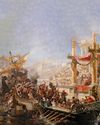
NAUMACHIA TRUTH BEHIND ROME'S GLADIATOR SEA BATTLES
In their quest for evermore novel and bloody entertainment, the Romans staged enormous naval fights on artificial lakes
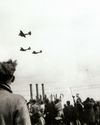
OPERATION MANNA
In late April 1945, millions of Dutch civilians were starving as Nazi retribution for the failed Operation Market Garden cut off supplies. eet as In response, Allied bombers launched a risky mission to air-drop food

GASSING HITLER
Just a month before the end of WWI, the future Fuhrer was blinded by a British shell and invalided away from the frontline. Over a century later, has the artillery brigade that launched the fateful attack finally been identified?
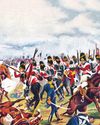
SALAMANCA
After years of largely defensive campaigning, Lieutenant General Arthur Wellesley went on the offensive against a French invasion of Andalusia

HUMBERT 'ROCKY'VERSACE
Early in the Vietnam War, a dedicated US Special Forces officer defied his merciless Viet Cong captors and inspired his fellow POWs to survive
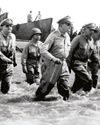
LEYTE 1944 SINKING THE RISING SUN
One of the more difficult island campaigns in WWII's Pacific Theatre saw a brutal months-long fight that exhausted Japan’s military strength

MAD DAWN
How technology transformed strategic thinking and military doctrine from the Cold War to the current day
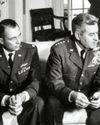
BRUSHES WITH ARMAGEDDON
Humanity came close to self-annihilation with the Cuban Missile Crisis, Broken Arrows’ and other nuclear near misses
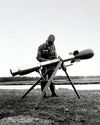
THE DEADLY RACE
How the road to peace led to an arms contest between the USA and USSR, with prototypes, proliferation and the world’s biggest bomb

THE MANHATTAN PROJECT
Einstein, Oppenheimer and the race to beat Hitler to the bomb. How a science project in the desert helped win a war